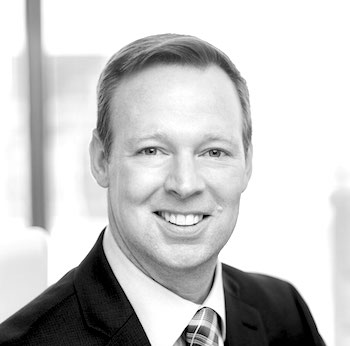In the world of investing and finance, most people simply focus on wealth creation and preservation. Yet what is often overlooked and neglected is our most valuable asset—an asset so critical that without it, we are unable to enjoy the fruits of all of our other asset classes combined. The asset is you and your health.
Insurance and Health Do Not Guarantee the Best Care
Health is often taken for granted and we believe that insurance is the instrument that provides us cover in the event of medical problems. The reality is that healthcare insurance is a financial hedge against unforeseen medical (financial) loss. Health insurers don’t really care about you—they care about quarterly revenue and profit margins. Insurance is for hospitals, not doctors. If you want a medical expert, advocate, and co-pilot concerned about what matters to you as much as what is the matter with you, it’s time to take a serious look at the private medical marketplace. This is especially true given that the medical industry is in a state of turmoil with the transition from The Affordable Care Act (ACA) to the American Health Care Act (AHCA), which likely will reduce access. Wealthy people often know folks at the “Concierge-Suite” of hospitals and think that knowing these executives will ensure good care. Yet numerous studies highlight the well-known “VIP syndrome” in which there are many experts but no quarterback directing a VIP’s care, leading to poor outcomes.
Additionally, as medicine gets more complex, it is difficult for doctors to stay ahead of the curve of new innovations and rapidly evolving treatment paradigms. Medicine has always suffered from a long learning curve to execute new diagnostic and treatment protocols. The bench to bedside timeline—or from discovery in the lab to clinical trials to the standard of care—typically takes years. This would never happen in financial markets where a hedge fund and quantitative traders’ arbitrage in microseconds can exploit the smallest market inefficiencies.
“Healthcare and the medical profession are on the cusp of a major redesign of how to deliver care in a world of big data, artificial intelligence, and breakthroughs in biotech”
Concierge Medicine Has Emerged to Deal With These Issues
This new model has been gaining momentum since the late 1990s and has finally reached a point of maturity and differentiation in the marketplace. For a monthly or annual fee, you retain a private doctor to manage your health asset…and like everything, you get what you pay for in this evolving landscape. At the high end of the market, there are medical concierge practices that operate very much like a family office for health and well-being, whereas the middle tier is made up mostly of doctors who left the treadmill-driven, transactional model merely to have more time to cynically practice ‘business as usual.’
These private medical concierge practices have built and designed a model that reflects the reality of modern healthcare. People want their doctors to be “…thinking about them when they’re not in our office,” says Dr. Jordan Shlain, founder and managing partner of Private Medical, recently featured in The New York Times. He adds, “We prefer to be proactive and prevent illness with individualized screening. After all, the three leading causes of death are cardiovascular disease, cancer, and medical errors. At Private Medical, we get out in front of heart disease utilizing aggressive medical management, and while we can’t prevent cancer, we can vigorously employ personalized surveillance strategies, and we work in ways and within engineered systems that dramatically reduce errors.”
[To read more of Robert Dalie’s thought leadership click here]
The doctors at Private Medical approach clients’ health asset in the same way CEOs would approach their company boards. That is, the doctor provides a detailed, bespoke Medical Annual Report that shows historic trends and a brief discussion of strategies for the optimal outcomes. They have taken the best practices from many other industries and employed them for health and well-being. In addition to a personal annual report, there is a longer-term strategic plan, by quarter, for continued measuring and testing. In a world where everyone wants to measure everything about them, a.k.a. the quantified self-movement, Private Medical focuses on the qualified self.
Measuring the Things That Matter
In one instance, Dr. Shlain saved a life by organizing a SWAT team of experts and choreographed a multidisciplinary team to remove a cancer that was about to eat into a patient’s skull. They were thorough and expeditious, connected all the dots, and stayed on top of every detail. Their philosophy of health is the same as The Summa Group’s philosophy of wealth. The Summa Group is emphatically committed to advocating for clients’ most pressing issues and concerns. The ability to provide access to Dr. Shlain and his team is absolutely crucial to accomplishing this goal. There is no greater gift for the families advised by The Summa Group than providing them with the peace of mind that comes with private medical care at this level.
[For more on Oppenheimer’s approach to Investment Banking click here]
Healthcare and the medical profession are on the cusp of a major redesign of how to deliver care in a world of big data, artificial intelligence, and breakthroughs in biotech. Just as important as diversity in sector allocation and investment performance, healthcare is an asset class everyone should spend time reviewing. Without a doubt, it’s your most valuable asset.













































